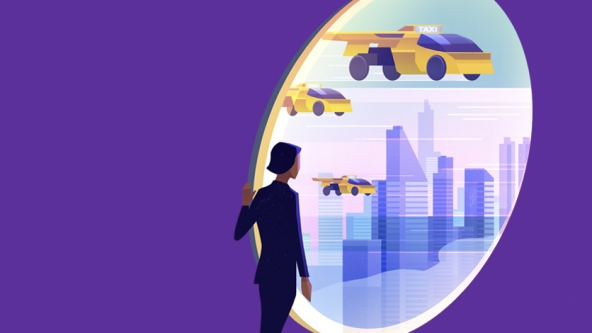Let’s face it: interviews are scary. For many of us, dealing with the make-or-break pressure of an interview never gets easier, no matter how many we do. That’s why, instead of trying to end ‘interview fear’, we’re better off learning how to manage it.
Octopus employees Niki Graham, Natalie Galbraith, Niall Quinn and Ronak Shah know all about scary interviews. They recently went through the gruelling interview process for The International Exchange (TIE), a programme which places Octopus volunteers with charities and social initiatives in the developing world.
For Niki, Natalie, Niall and Ronak, TIE was the most nerve-wracking interview they’d ever faced. “Interviews are really tough, and TIE was one of the toughest. You have to be able to explain your personal motivations clearly and articulately, which can be very intimidating,” says Niall.
To add to the pressure, their interviewer for TIE was the CEO of Octopus, Simon Rogerson, along with Stuart Sheppard, one of Octopus Giving’s trustees, and a member of the TIE alumni. “I wanted it more than anything I’ve ever interviewed for,” explains Ronak. “I’ve never had to speak so passionately about issues that move me – let alone in front of a CEO.”
So how did they conquer their fears and get ready for the interview of their lives? Here are their top tips:
1.Do your prep
Winging it’ through an interview might work for the lucky few but for the rest of us, it’s a surefire recipe for stress. A better approach is to research the role ahead of time and think about why you’re right for it.
“I’ve applied for several jobs, and had several bad interviews too,” says Ronak. “Looking back, the bad interviews happened because I hadn’t really asked myself why I wanted the job.
“For my TIE interview, I put a lot of thought into why I wanted to be on the programme. I researched the different projects on offer and considered why they excited me. Then I wrote everything down.
“Being well-prepared helped me speak confidently and freely in my interview. Simon has quite a direct style of questioning, but that wasn’t a problem because I’d approached my answers from lots of angles during preparation. The result: questions that could have stumped me became cues for me to really open up.”
2.Have a practice run (or two)
You’ve done the prep. The next step? Put it into practice. But don’t overdo it – it’s tempting to memorise ‘perfect’ answers, but that’ll make for a robotic interview, and you never know exactly what an interviewer will ask. Instead, get in front of a mirror and start talking. Practise answers to common questions such as “why is this opportunity so exciting for you?”.
Even better, ask friends or family to step into the interviewer role, like Niki did. “Before my interview, I wrote down three or four clear points about why I wanted to go on TIE. I also articulated why I they should choose me,” she explains.
“Then I had a practice interview with my boyfriend. He asked lots of questions, which forced me to think about what I was saying and how I was saying it. I discovered that sometimes, I take too long to make a point, and sharpened my answers as a result.”
3.Don’t be afraid to be yourself
Interviews aren’t interrogations. They’re a tool to help both you and the interviewer find out whether you’re the right fit. Don’t be afraid to show your personality, ask questions, and voice any concerns.
“My advice is to be yourself, be honest and don’t hold back,” says Natalie. “Most interviewers can tell in a heartbeat if you’re not being genuine.
“It’s okay to show your fears and worries, especially if you’re talking about something you really care about, like I was with TIE. What matters is that you can capture those feelings and express them positively.”
A bit of emotional honesty goes a long way. Remember, your interviewer is a human too – even if they happen to be a CEO!
4.Treat yourself well
For many of us, the signs of pre-interview nerves are all too familiar: sweaty palms, shallow breathing, weak knees, and a racing heartbeat. While it’s inevitable to feel anxious, sitting somewhere quiet can work wonders for frazzled pre-interview nerves. Try listening to relaxing music, or if that’s not your thing, close your eyes and take slow, deep breaths.
“I normally give myself 30 minutes to relax,” says Niall. “Before my TIE interview, I popped over to a coffee shop and read something completely off-topic. If you do the same, don’t go overboard on espressos, though! You don’t want to be bouncing off the walls during your interview.
“It’s important to chill out ahead of any stressful situation. If you can carry a bit of that composure into your interview, you’ll think about questions before you answer, and take your time.”
Ready to go?
Sadly, there’s no magic cure for interview nerves. But it’s important to remember we all get them – including the person who’s interviewing you. That means they’ll probably understand any little mistakes and slip-ups.
Take the time to prepare beforehand – and to relax. And then trust your instincts and go for it. You’ve got this.


